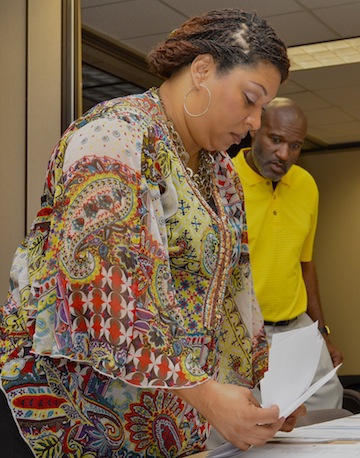Mentoring program expected to make a difference for minority children
A statewide coalition involving UF’s College of Education and Florida’s four historically black colleges and universities – formed last year to match at-risk male elementary school students with minority college students as role-model mentors – has received $500,000 from the Florida Legislature to continue and expand the program for 2014-2015.
Representatives of the research project, known as the Situational Environmental Circumstances Mentoring Program, or SEC, held a three-day leadership training conference at the COE’s Norman Hall recently, gearing up for the second year of the state-funded project. The program provides 150 minority children in grades 3, 4 and 5 with an hour of one-on-one mentoring each week from a male minority college student.
UF COE liaison Cheryl Williams and Michael Bowie, principal investigator of the project and director of the college’s Office for Recruitment and Retention and Multicultural Affairs helped expand the SEC after discussing the program’s potential with founder Randy Nelson, CEO and lead consultant with 21st Century Research and Evaluations Inc.
Williams said the high school graduation rate for black males in Florida is 47 percent and “that’s unacceptable.”
“That’s why we plan to demonstrate that one-on-one mentoring can improve the attendance, grades and behavior of at-risk kids,” Williams said. “The mentors all have similar backgrounds as the mentees, so we expect to see the mentors benefit as well.”
UF is the administrative agent for the program, which got its start last year with a $619,000 allocation from the state legislature. Other coalition institutions include Florida A&M University in Tallahassee, Edward Waters College in Jacksonville, Bethune-Cookman University in Daytona and Florida Memorial University in Miami.
The group will evaluate the program’s impact on the grade-school minority children. This is the first year that third-graders are participating.





